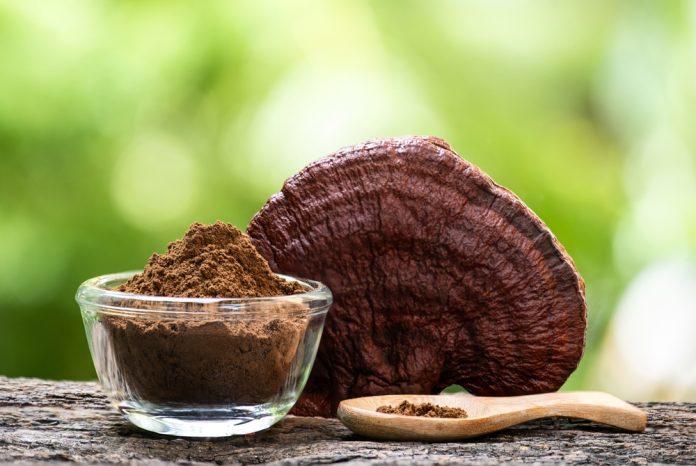
Once known only to monks and ancient Chinese healers, Ganoderma lucidum – better known as Reishi mushroom – is now finding its place in the lives of modern Irish people.
Known for centuries as the Mushroom of Immortality, Reishi has a vast and rich legacy both culturally and medicinally. Today, it’s enjoying a revival across Europe, particularly in Ireland, where interest in functional mushrooms is rising alongside demand for natural solutions to stress, sleep health, and immune system support.
But what makes Reishi so special? Why is it suddenly on the radar of health-conscious consumers (particularly women) and biohackers who no longer want to look to pharmaceuticals for health solutions? And what does the science really say about this fascinating fungus? Let’s find out.
How people use Reishi in Ireland and why women are leading the way
Reishi is becoming a go-to supplement for many Irish wellness consumers, but what’s especially interesting is its growing popularity among women.
We spoke to the people behind Dr Mush Me, and while people of all lifestyles are incorporating this functional mushroom into their routines, more and more Irish women are turning to Reishi for support in areas uniquely relevant to their health.
For many, it’s the combination of natural hormone support, stress relief, and sleep enhancement that makes Reishi so appealing.
Women juggling careers, caregiving roles, and the physical demands of hormonal shifts – whether during menstruation, perimenopause, or menopause – are seeking alternatives to pharmaceutical solutions and finding that Reishi offers gentle, long-term support.
Across Ireland, Reishi is commonly used for:
- Hormonal balance and mood support: particularly around menstrual cycles or during the transition to menopause.
- Stress relief: often for those managing multiple responsibilities across work and home life.
- Better sleep: without the grogginess associated with sedatives or over-the-counter
- Immune support: especially during seasonal changes, after illness, or during times of high stress.
- General health: general mental health and emotional resilience as part of a holistic wellness routine.
While individual experiences vary, a noticeable trend has emerged that women are not only purchasing Reishi more often but also reporting particularly strong outcomes.
How Reishi supports the body
Immune health
Reishi’s best-known health benefit is its potential to support the immune system by helping to balance – not overstimulate – immune responses. This quality is especially valuable during times of hormonal fluctuation when immune sensitivity can change.
A 2018 study in Frontiers in Pharmacology found that compounds in Reishi enhanced both innate and adaptive immunity, helping the body adapt to stress and illness more effectively.1
Stress and emotional wellbeing
Reishi is considered an adaptogen, meaning it helps regulate the body’s stress response over time. This makes it particularly helpful for women experiencing hormonal mood swings, burnout, or anxiety.
A small pilot study involving breast cancer survivors showed that Reishi supplementation was associated with significant reductions in fatigue, anxiety, and depression.2 While further clinical data is needed, many women report feeling more emotionally balanced and resilient after consistent use of this nootropic mushroom.
Sleep and nervous system support
Traditionally used in Chinese medicine to calm the “Shen” or spirit, Reishi has sedative-like qualities that can help ease the nervous system into rest.
A 2012 animal study in Phytomedicine demonstrated Reishi’s ability to extend sleep time and improve non-REM sleep cycles, which may explain why so many users find it helpful for falling asleep and staying asleep – especially during hormonal changes that disturb rest.3
Reishi in Ireland: A growing movement
In Ireland, Reishi is enjoying a renaissance among those interested in natural health alternatives, preventative care, and herbal medicine.
Consumers are becoming increasingly curious about medicinal, functional mushrooms and are recognising that not all mushrooms fall into the psychedelic or culinary category.
Functional or nootropic mushrooms like Reishi, Lion’s Mane, and Cordyceps are entering mainstream conversations. From health stores to wellness podcasts, interest in the holistic potential of fungi is blossoming.
In the Irish supplement market, Reishi is fully legal and classified as a food supplement under EU regulations, provided it contains no psychoactive compounds and follows food safety standards.
It is typically sold as a tincture, capsule, or powdered extract and is commonly combined with other adaptogens or nootropics.
The EU view: Nutritional interest and regulation
Across the EU, Reishi is not classified as a novel food, as its use predates the 1997 threshold for novel classification. This has allowed Reishi products to grow steadily across the European market.
While regulation varies slightly between member states, Reishi is generally accepted as a safe, natural supplement with no controlled substance status.
That said, product claims remain tightly regulated. Companies must avoid unapproved health claims, meaning the education of consumers through content and transparency plays a key role here.
A royal mushroom with ancient roots
Reishi’s use can be traced back over 2,000 years in Traditional Chinese Medicine, where it was associated with longevity, vitality, and spiritual strength. Ancient texts describe Reishi as a tonic for “eternal youth,” reserved only for emperors and sages.
It earned the name Mushroom of Immortality not because it promised literal immortality, like many may think, but because it was believed to support the body’s natural ability to resist disease, reduce stress, and restore balance internally.
Unlike culinary mushrooms, Reishi is tough and woody. It’s consumed today as an extract, tea, capsule, or tincture, delivering a complex mix of bioactive compounds, including triterpenoids, polysaccharides, and beta-glucans. All of which have been linked to various physiological benefits.
Did you know?
- Reishi mushrooms grow on hardwood trees and are naturally rare in the wild. Most Reishi used in supplements is now sustainably cultivated. Opt for those close to home and grown organically within Europe rather than shipped from Asia.
- In Japan, Reishi is known as ‘mannentake’, meaning ‘10,000-year mushroom’.
- Reishi’s bitter taste comes from its triterpenes—compounds thought to support liver function and reduce inflammation.
Is Reishi worth exploring?
Reishi’s nickname, the Mushroom of Immortality, speaks to more than just its long-standing reputation in ancient medicine. Today, this adaptogenic fungus is becoming a symbol of holistic, balanced living in Ireland, particularly for women.
Its support for immunity, resilience, and rest fits well with the modern mindset, where long-term vitality is valued over quick fixes.
As Irish consumers become more curious and cautious about what they put in their bodies, Reishi offers a grounded, research-supported option in the functional mushroom space.
While it may not grant you eternal life, it may help you live better, and with more internal balance than before.
References
- Batra, P., Sharma, A. K., & Khajuria, R. (2013). “Ganoderma lucidum: A potent pharmacological macrofungus.” Current Pharmaceutical Biotechnology, 14(9), 885–892.
- Zhao, J., et al. (2012). “Effects of Ganoderma lucidum polysaccharides on fatigue and depression in breast cancer survivors.” Evidence-Based Complementary and Alternative Medicine, 2012.
- Yin, J., et al. (2012). “Hypnotic effect of Ganoderma lucidum in mice.” Phytomedicine, 19(11), 952–956.







